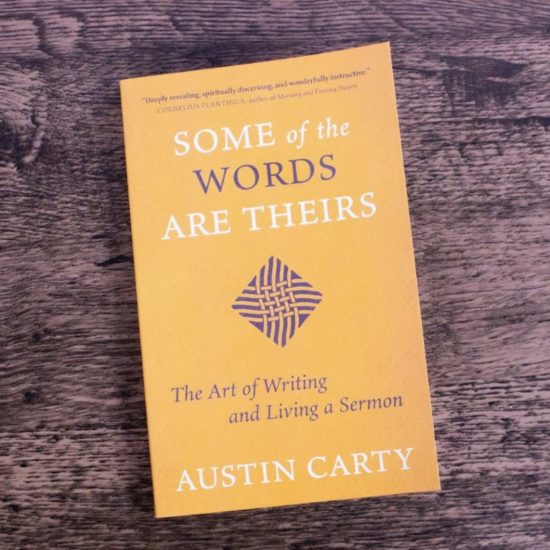
My new book, Dancing with Metaphors in the Pulpit, was written for two primary purposes. First, I wanted to be a voice for maintaining the power of intellectual integrity in the Church. Second, I desired to teach reluctant preachers the need for emotion and deep passion in the preaching act.

Rodney Kennedy
I am not talking about the loud, overbearing, dramatic emotion that characterizes many pulpits. Instead, I’m speaking of the quiet and determined passion that makes every word the preacher speaks feel like a stick of dynamite exploding in the congregation.
With the passion of St. Paul, my heart’s desire is to offer a road to a recovery of the rhetorical excellence and academic brilliance of the first four centuries of the church. The amazing story of the rhetorical scholars who accepted the call of God to preach the gospel fills the history of the early church. Rhetorical excellence does not occur by accident.
Particularly in America, all churches have been impacted by the populist movement that made education an enemy of the church. We have all felt the scourge of the “simple gospel.” Perhaps we grew up with revival preachers making fun of well-educated preachers. The anti-intellectual spirit of the evangelical churches has long haunted the story of Christianity in America.
Preaching has fallen on hard times. While there have always been those to bemoan the dreary preachers who droned on and on till judgment day, there is now a more existential peril. Preachers are busy. They are so busy with so much busy work, all of it good and necessary. This good work takes away time from intellectual development.
Let me offer a simple mathematical analogy. When a preacher starts to write a sermon on Thursday morning, if she has gathered 30 or more examples, images, illustrations, quotes, and stories, she will be better equipped to write a great sermon than the preacher who has only 3 pieces of evidence. And there’s only one way to accumulate an abundance of materials: reading.
The reading life of the preacher needs to be pursued passionately by preachers and congregations. A preaching reading from a variety of disciplines is a gift he or she offers to the church. The preacher should encourage the reading habits of the congregation. In turn, the congregation should offer articles and books they think will be beneficial for the pastor to read. It becomes a reading covenant that produces amazing results.
The preacher’s reading life naturally thrives on the daily lectionary as a constant companion. Add to this the reciting of the psalms. We are born with the Psalms in the depths of our being. Andre Chouraqui taught me, “This is more than a book; it is a living being who is speaking, and speaking to you; a living being who suffers, who groans and dies, who comes to life again and sing — and all of this on the threshold of eternity.” And I can’t forget these words: “The psalter is a book whose every letter lives and dances like a joyous fire.” A preacher immersed in the Bible will be a preacher with more to say than she can say in four lifetimes.
Borrowing from Pat Conroy, I am a collector of words. Here are words from Conroy that still inspire my reading: “Because I was raised Roman Catholic, I never feared taking any unchaperoned walks through the fields of language. Words lifted me up and filled me with pleasure. I’ve never met a word I was afraid of, just ones that left me indifferent or that I knew I wouldn’t ever put to use. When reading a book, I’ll encounter words that please me, goad me into action, make me want to sing a song. I dislike pretentious words, those highfalutin ones with a trust fund and an Ivy League education.”
I wondered if I might reawaken in some preachers a desire to steal a few hours here and there every week to concentrate on the sermon. I have cultivated a lifelong habit of spending a bit of time every day of the week on thinking, pondering, and meditating on the lectionary texts for the coming Sunday. Fifteen minutes a day times four and you will have given an hour to the sermon. Flannery O’Connor famously said she would sit at her typewriter every morning for three hours so “if something came she would be prepared to receive it.” Spending the early mornings of the day in meditation over the upcoming lectionary texts for Sunday seems an essential part of a minister’s calling.
After all, the preacher/priest makes a vow to engage in faithful preaching in his or her ordination. The bishop asks, “Will you be diligent in the reading and study of the Holy Scriptures, and in seeking the knowledge of such things as may make you a stronger and more able minister of Christ?” The candidate responds, “I will.”
Then the bishop asks, “Will you endeavor so to minister the Word of God and the sacraments of the New Covenant, that the reconciling love of Christ may be known and received?” The candidate responds, “I will.”
Like my mentor, Carlyle Marney, I have always believed the preacher has every reason to stand, hat in hand, before all the other disciplines, to be informed in the knowledge capable of making us the best of preachers. Am I suggesting the impossible task of the preacher as a Renaissance person? Yes, without apology, that is exactly my point.
I have six books from six disciplines on my desk at all times. Read a chapter a day from each book. When those six are finished, get another six. I am interested in the preacher as a rhetorician, a philosopher, a scientist, a writer, and a poet. It goes without saying the preacher is a theologian and biblical studies scholar — the scholar in residence of her parish.

There are two literary recommendations that furnish the energy that produced Dancing with Metaphors in the Pulpit. When the Israelites were packing to leave the slavery of Egypt, God told them, “Plunder the Egyptians.” The greatest rhetorical theorist of the 20th century, Kenneth Burke, advises students, “Use everything.” I have lived my preaching life around the metaphorical construction of “plunder the Egyptians” and the practical advice of “Use everything.”
The other major reason I wrote this preaching book was to encourage the full expression of passion, an exploration of feelings and emotions. There is a branch of rhetoric — affect theory — that deals with the importance of pathos in communication. Affect theory is a field of conversations emerging from queer theory, poststructuralism, feminism, and antiracist theory. I am convinced we have a bad definition of emotions that inhibits many preachers from the expression of honest feelings.
I discovered that metaphors, analogies, symbolic language, and a total lack of interest in literalism are all part of the feelings, the emotions of the sermon. The poets helped me learn to “feel” the action of the words in the texts from Scripture.
A book forty years in the writing had a variety of ancillary reasons for being brought to life. I wrote out of the frustration I experience when I endure a bad sermon. Some of my own sermons have been in the area code of the atrocious. I once burned an entire batch of sermons. There was more fire in their burning than in their preaching.
I have low tolerance and little patience with bad sermons. A bad sermon ignores the biblical text. It refuses to take seriously what the text is doing. A bad sermon offers a Sunday school lesson but no attention is given to the actions I should take as a result of hearing the sermon. A bad sermon is a disorganized blob of a preacher’s opinions. A bad sermon sounds rote, trite, and uninteresting even to the pious. A bad sermon shows no relationship to the best of theology, biblical studies, and the scholars of all the other disciplines. A bad sermon is reductionistic rather than poetic. It is flat, boring, useless. A bad sermon contains no images, metaphors, analogies, stories, examples, or illustrations. A bad sermon tacks the gospel reading to the end of the preachers’ weekly opinion session without comment.
Dancing with Metaphors in the Pulpit is the opening of my rather secret self and a revealing of who I am. There’s no holding back in these pages. I am not parsing my words or worrying about what some church member might think.
What I have written, in my opinion, has value for any preacher, but its message will have more affinity for progressive preachers. I was attempting an act of persuasion: to persuade more preachers to take on the powers and the principalities with the strong and mighty words of poetry, rhetoric, philosophy, novelists, and short story writers.
The time will fly as you give yourself to the ministry of producing sermons. It will flash by, as year after year, you read 200 books. In 60 years, that will be 1,200 books. Those who hear you preach will call you blessed.
Rodney Kennedy has his M.Div. from New Orleans Theological Seminary and his Ph.D. in Rhetoric from Louisiana State University. The pastor of 7 Southern Baptist churches over the course of 20 years, he pastored the First Baptist Church of Dayton, Ohio — which is an American Baptist Church — for 13 years. He is currently professor of homiletics at Palmer Theological Seminary, and interim pastor of Emmanuel Friedens Federated Church, Schenectady, New York. His eighth book, Dancing with Metaphors in the Pulpit, is out now from Cascade Books.






